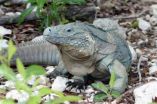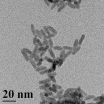(Press-News.org) Researchers at The University of Western Ontario have identified genes that may be important for preventing childhood leukemia. Acute lymphoblastic leukemia (ALL) is a cancer of the blood that occurs primarily in young children. It's frequently associated with mutations or chromosomal abnormalities that arise during embryonic or fetal development. Working with mice, researchers led by Rodney DeKoter identified two key genes that appear essential in the prevention of B cell ALL, the most common form of ALL in children. The study is published online in Blood, the Journal of the American Society of Hematology. http://bloodjournal.hematologylibrary.org/content/early/2011/07/15/blood-2011-02-335539.abstract
In the study, mice were generated with mutations in two genes called PU.1 and Spi-B. Mutation of either PU.1 or Spi-B individually had little effect. Unexpectedly, mutation of both genes resulted in 100% of the mice developing B cell ALL. Eighty percent of ALL cases in children are of the B cell type. The study found PU.1 and Spi-B have unanticipated functional redundancy as "tumor suppressor" genes that prevent leukemia.
"You can think of PU.1 and Spi-B proteins as brakes on a car. If the main brake (PU.1) fails, you still have the emergency brake (Spi-B). However, if both sets of brakes fail, the car speeds out of control," explains DeKoter, an associate professor in the Department of Microbiology & Immunology at Western's Schulich School of Medicine & Dentistry. "And uncontrolled cell division is an important cause of leukemia."
PU.1 is an essential regulator in the development of the immune system, and mutations in this gene have been previously associated with human ALL. DeKoter hopes these studies will ultimately lead to improved, less toxic, therapies for childhood leukemia. Currently, about 80% of ALL patients go into complete remission when treated with aggressive chemotherapy.
INFORMATION:
This research was funded by the Canadian Institutes of Health Research and the Natural Sciences and Engineering Research Council of Canada.
DeKoter is also affiliated with the Centre for Human Immunology at Western and the Children's Health Research Institute. The lead author on the paper is Kristen Sokalski, a 2011 BMSc graduate with an honours specialization in Biochemistry of Infection & Immunity. Stephen Li and Marek Gruca, both MSc students supervised by DeKoter, and Ian Welch and Heather Cadieux-Pitre of Western's Veterinary Services also worked on the project.
Research identifies genes vital to preventing childhood leukemia
2011-07-19
ELSE PRESS RELEASES FROM THIS DATE:
Grand Cayman blue iguana: Back from the brink of extinction
2011-07-19
While thousands of species are threatened with extinction around the globe, efforts to save the Grand Cayman blue iguana represent a rarity in conservation: a chance for complete recovery, according to health experts from the Wildlife Conservation Society's Bronx Zoo and other members of the Blue Iguana Recovery Program.
Coordinated by the National Trust for the Cayman Islands, the Blue Iguana Recovery Program—a consortium of local and international partners—has successfully released more than 500 captive-bred reptiles since the initiative's inception in 2002, when the ...
Preschool-age kids in different countries improve academically using self-regulation game
2011-07-19
Children who regularly participated in a Simon Says-type game designed to improve self-regulation – called the Head-Toes-Knees-Shoulders task – may have better math and early literacy scores.
The study found that the higher academic outcomes associated with the game, which emphasizes careful listening and following instructions, does not just benefit students in the United States, but also benefits children tested in Taiwan, China and South Korea.
More than 800 preschool age children ages 3-6 years old in the four countries participated in the study, which was just ...
IADR/AADR publish study on use of Twitter for public health surveillance of dental pain
2011-07-19
Alexandria, VA, USA – The microblogging service Twitter is a new means for the public to communicate health concerns and could afford health care professionals new ways to communicate with patients. With the growing ubiquity of user-generated online content via social networking Web sites such as Twitter, it is clear we are experiencing a revolution in communication and information sharing. In a study titled "Public Health Surveillance of Dental Pain via Twitter," published in the Journal of Dental Research—the official publication of the International and American Associations ...
Solar Panels Keep Buildings Cool
2011-07-19
Those solar panels on top of your roof aren't just providing clean power; they are cooling your house, or your workplace, too, according to a team of researchers led by Jan Kleissl, a professor of environmental engineering at the UC San Diego Jacobs School of Engineering.
In a study in an upcoming issue of the journal Solar Energy, Kleissl and his team published what they believe are the first peer-reviewed measurements of the cooling benefits provided by solar photovoltaic panels. Using thermal imaging, researchers determined that during the day, a building's ceiling ...
New grant supports Hastings work on ethics of medical research with animals
2011-07-19
(Garrison, NY) The Esther A. and Joseph Klingenstein Fund awarded The Hastings Center a $159,000 grant to explore the ethical, scientific, and legal issues on using animals in medical research and on the prospects for using alternatives to animal models.
The project comes at a time when arguments about animal experimentation are changing in fundamental and profound ways. Scientific journals and some biomedical researchers are calling for increased public engagement and education about animal research. The longstanding view that one is either pro-medical progress or pro-animal ...
8-question survey can help predict post-traumatic stress disorder
2011-07-19
A simple eight-question survey administered soon after injury can help predict which of the 30 million Americans seeking hospital treatment for injuries each year may develop depression or post-traumatic stress, report Therese S. Richmond, PhD, CRNP, associate professor at the University of Pennsylvania School of Nursing, and her colleagues in General Hospital Psychiatry.
"Depression and PTSD exert a significant, independent, and persistent effect on general health, work status, somatic symptoms, adjustment to illness, and function after injury," the authors wrote, also ...
Chloroquine finding may lead to treatments for arthritis, cancer and other diseases
2011-07-19
In a study published recently in the journal Science Signaling Van Andel Research Institute (VARI) scientists demonstrate on the molecular level how the anti-malaria drug chloroquine represses inflammation, which may provide a blueprint for new strategies for treating inflammation and a multitude of autoimmune diseases such as arthritis, multiple sclerosis, and certain cancers.
Chloroquine is a widely used anti-malaria drug that inhibits the growth of parasites. For decades, chloroquine and its derivative amodiaquine have also been used as anti-inflammation drugs to treat ...
MadCap Software Raises the Bar on 30-Day Trial Software by Adding Free Gold Level Telephone Support
2011-07-19
Business users take advantage of trial software so they can understand exactly what they are purchasing, but they still have to buy support plans on blind faith. One company is changing that. MadCap Software, Inc. (http://www.madcapsoftware.com), the leader in multi-channel content authoring and a showcase company for Microsoft (NASDAQ: MSFT) Visual Studio and Microsoft XPS, today announced that every 30-day free trial version of its technical communications software now also comes with a 30-day free trial of MadCap's Gold Level technical support. Gold Level support during ...
Rapid venom evolution in pit vipers may be defensive
2011-07-19
Research published recently in PLoS One delivers new insight about rapid toxin evolution in venomous snakes: pitvipers such as rattlesnakes may be engaged in an arms race with opossums, a group of snake-eating American marsupials. Although some mammals have long been known to eat venomous snakes, this fact has not been factored into previous explanations for the rapid evolution of snake venom. Instead, snake venom is usually seen as a feeding, or trophic, adaptation. But new molecular research on snake-eating opossums by researchers affiliated with the American Museum of ...
Cadmium selenide quantum dots degrade in soil, releasing their toxic guts, study finds
2011-07-19
BUFFALO, N.Y. -- Quantum dots made from cadmium and selenium degrade in soil, unleashing toxic cadmium and selenium ions into their surroundings, a University at Buffalo study has found.
The research, accepted for publication in the journal Environmental Science and Technology, demonstrates the importance of learning more about how quantum dots -- and other nanomaterials -- interact with the environment after disposal, said Diana Aga, the chemistry professor who led the study.
Quantum dots are semiconductor nanocrystals with diameters of about 2 to 100 nanometers. ...




